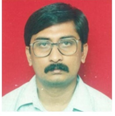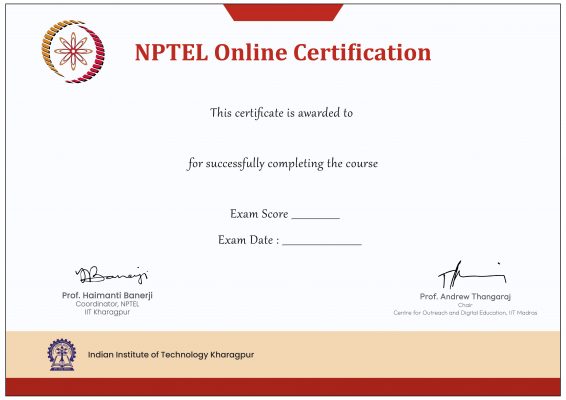Description
Databases form the backbone of all major applications today – tightly or loosely coupled, intranet or internet based, financial, social, administrative, and so on. Structured Database Management Systems (DBMS) based on relational and other models have long formed the basis for such databases. Consequently, Oracle, Microsoft SQL Server, Sybase etc. have emerged as leading commercial systems while MySQL, PostgreSQL etc. lead in open source and free domain.
While DBMS’s differ in the details, they share a common set of models, design paradigms and a Structured Query Language (SQL). In this background the course examines data structures, file organizations, concepts and principles of DBMS’s, data analysis, database design, data modeling, database management, data & query optimization, and database implementation. More specifically, the course introduces relational data models; entity-relationship modeling, SQL, data normalization, and database design. Further it introduces query coding practices using MySQL (or any other open system) through various assignments. Design of simple multi-tier client / server architectures based and Web-based database applications is also introduced.
INTENDED AUDIENCE
Students from all disciplines can enroll for this course.
PRE-REQUISTES
1. Procedural and / or Object-Oriented Programming (C / C++ / Java / Python)
2.Data Structures
3.Algorithms
INDUSTRY SUPPORT
DBMS is so fundamental that all companies dealing with systems as well as application development (including web, IoT, embedded systems, data mining, machine learning) have a need for the same. These include – Microsoft, Samsung, Xerox, Yahoo, Google, IBM, TCS, Infosys, Amazon, Flipkart, etc.
ABOUT THE INSTRUCTOR

Prof. Partha Pratim Das received his BTech, MTech and PhD degrees in 1984, 1985 and 1988 respectively from IIT Kharagpur. He served as a faculty in Department of Computer Science and Engineering, IIT Kharagpur from 1988 to 1998. In 1998, he joined Alumnus Software Ltd as a Business Development Manager. From 2001 to 2011, he worked for Interra Systems, Inc. as a Senior Director and headed its Kolkata Center. In 2011, he joined back to Department of Computer Science and Engineering, IIT Kharagpur as Professor. Dr. Das has also served as a Visiting Professor with Institute of Radio Physics and Electronics, Calcutta University from 2003 to 2013.
Dr. Das is currently the Head of Rajendra Mishra School of Engineering Entrepreneurship, the Professor-inCharge of the upcoming Research Park of IIT Kharagpur at Rajarhat, Kolkata, and the Joint Principal Investigator of National Digital Library of India project of MHRD.
Dr. Das has taught several courses in Computer Science including Software Engineering, Object-Oriented Systems, Programming and Data Structure, Compiler Design, Design and Analysis of Algorithms, Information System Design, Database Management Systems, Computational Geometry, Principles of Programming Languages, Embedded Systems, and Image Processing. Jointly with 2 others, he has also offered a course on Introduction to Design of Algorithms under the T10KT program of NME-ICT, MHRD (https://www.facebook.com/t10kt.algorithms/) to nearly 7000 teachers. Further, Dr. Das has been offering Programming in C++ and Object-Oriented Analysis and Design in NPTEL-NOC. Both courses are regularly attended by thousands of students.
Dr. Das has published over 40 technical papers in international journals in areas of Digital Geometry, Image Processing, Parallel Computing and Knowledge-based Systems. In 2013 he has co-authored a research monograph titled Digital Geometry in Image Processing (CRC Press). His current interests include Human-Computer Interactions, Computer Analysis of Indian Classical Dance, Object-Oriented Systems Analysis and Design, Software Engineering, Compiler Technology, and Technology Enabled Learning. Dr. Das is a member of Association of Computing Machinery (ACM), The Institute of Electrical and Electronics Engineers (IEEE), and Indian Unit for Pattern Recognition and Artificial Intelligence (IUPRAI).

Samiran Chattopadhyay obtained his B Tech and M Tech degree in 1987 and 1989 respectively from IIT Kharagpur. He obtained his PhD degree from Jadavpur University in 1993. He served as a faculty in the Department of Computer Science and Engineering, Jadavpur University from 1989 to 1993. In 1993, he moved to industry and joined back the same department in Jadavpur University as an Associate Professor in 1997. Since 2001, he is a Professor of Information Technology in Jadavpur University.
Dr. Chattopadhyay is also a visiting fellow of the University of Northumbria, Newcastle upn Tyne UK. He was an adjunct faculty at IIT Kharagpur for the Distributed Systems course and a visiting faculty member for the MTech course by IIT Kharagpur which was offered in distance learning mode.
Dr. Chattopadhyay has more than two decades of experience of serving reputed Industry houses including Mindware, Computer Associates TCG Software, Interra Systems India Ltd. He is also a project consultant of the prestigious National Digital Library Mission of Government of India.
Dr. Chattopadhyay has taught several courses in Computer Science including Software Engineering, Object-Oriented Systems, Programming and Data Structure, Compiler Design, Design and Analysis of Algorithms, Information System Design, Database Management Systems, Ad hoc Wireless Networks, Cloud Computing. Dr. Chattopadhyay has been a co-faculty in Database Management Systems in NPTEL-NOC.
Dr. Chattopadhyay has published over 60 technical papers in international journals in the areas of Wireless Networks, Network Security, Machine learning applications. He has co- authored a research monograph titled ‘Digital Geometry in Image Processing’, a textbook titled ‘Data Structures through C’ and ‘Big Data in e-Healthcare’. His current research interests include Network Security, Machine learning, Wireless network and Pervasive computing..



Vibhor Mittal –
Excellent
GREESHMA DEVI –
GOOD